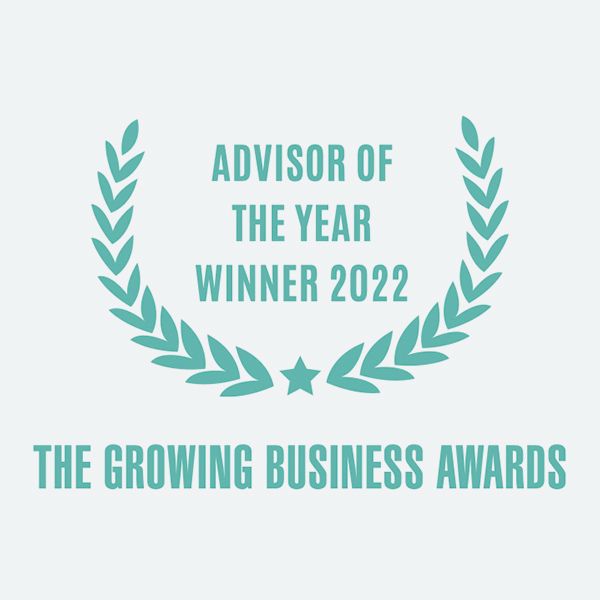

Self-leadership: entrepreneurs need to nail this before they lead others
25th March 2020
Being an entrepreneur means that you are a leader. You have chosen to lead life on your terms and paddle your own canoe. You have a vision. You saw a problem and made it your mission to solve it for yourself, customers or the world. This makes you a leader. Yet without working on yourself as a leader, you will easily find yourself in the wilderness, lost and being led by your monkey brain. A skilled leader notices when the monkey starts making decisions and actively chooses to activate the executive, human brain – the entrepreneurial brain.
In my book LeaderX, how to step up, take control and lead with impact, I share how to you become a self-leader, this is vital before you can begin to lead teams and businesses. It doesn’t matter whether you lead a small business or a huge corporation, the principles are the same, because humans are actually pretty alike. Believe me when I say people generally know more about their favourite sports team or holiday destination than they do about themselves. If you don’t have absolute clarity over your vision or your values, you will be easily influenced by others. You become the follower and easily distracted, resulting in chaos, uncertainty and instability and that leads to dire performance.
The first important question to ask yourself
I am going to assume you already have a clear vision and mission. I will also assume that you are super passionate about it. If you’re not, it’s the wrong vision. The entrepreneur journey is one hell of a rollercoaster and your passion and belief to keep you going through the hard times, the blocks and barriers and moments of self-doubt is essential.
Now ask yourself ‘What kind of leader do I need to be to deliver my vision?’
If you haven’t done any self-development work before, this might be a little uncomfortable as you will be asked to accept who you are, what you believe in and what you stand for. You will be asked to critically assess your strengths, weaknesses, values and attitudes, and to understand how these have an impact on your behaviour and decisions. If you don’t know yourself and trust yourself, how can you expect anyone else to trust you? Being a leader from within means you understand why you do what you do and think the way you think. You can objectively look at your behaviours, your values and your beliefs and understand how these have shaped your leadership approach. You have total clarity about your own particular strengths, and how can you best utilise them, but also embrace your weaknesses and how to build a team around them.
Your ability to solve problems, create and get stuff done got you this far, but now as a leader, it’s less about what you do and much more about how you do it. Leaders without self-leadership are unable to take accountability or responsibility. They blame others and external factors for life’s misfortunes. This is neither inspiring or healthy in any company culture. Blame cultures creep in subtly and take hold quickly. Don’t be that kind of leader.
Unless you understand yourself, you are not fully in control or in charge of the decisions you make. It means dropping the ego and developing character and presence. Whether you are leading
thousands or focusing on being the leader of your own life, the starting point is always with you. You are the one constant in all of your roles and responsibilities so become a master of your own life and create the legacy you dream of.
How to develop self-leadership
By doing the inner work, you will be confidant with the person you are and won’t feel the need to hide anymore or pretend to be something you’re not. Your decision making will become congruent with your vision and values and everything becomes easier. There is no downside. You are going to care more about yourself, others and the world around you. That’s the kind of leader we all want to follow.
1. Behavioural style
Behavioural science is a great starting place as it helps you to understand why you behave, think and act like you do. You might be orderly, high detail, introverted or spontaneous. You might be a starter, but rubbish at follow through, or perhaps you are competitive and results focused and forget about people and the impact on others. Knowing this about yourself will help you to create strategies to improve and perform and ultimately build a team of people who compliment you. I use Everything DiSC as it’s easy to understand and actually meaningful. So start knowing your behaviours.
2. Strengths and weaknesses
Building on from your behaviours, find out what is easy for you and what is a challenge. Often we don’t realise our own strengths because they really are so innate within us. We dismiss them and don’t give them value. Take a moment to reflect on all of those skills and strengths that you have that you can do effortlessly. Perhaps you are a communicator, you can hold a beat, you inspire or can see complex processes simply. Perhaps you can code, draw, dance or build relationships – perhaps you can’t. Do a skills and strengths inventory and then decide how you can leverage or upskill to help you achieve your vision. If you really struggle with this – get feedback by asking others.
3. Own your values
I like to think of your values as your moral and ethical compass. They are the way you choose to navigate life. When you live in accordance to your values you feel in flow. When you go against them you feel compromise, guilt and discomfort. Once you have discovered and claimed your values, it becomes really easy to assert your boundaries. You have are able to give clarity around what is OK and not OK with you. You treat others as you wish to be treated yourself and soon your vibe attracts your vibe. You will fill your team with people who see the world in a similar way, even if they have different behaviours or strengths (which is the goal), your values are aligned. This creates the ultimate team.
4. Get to know your beliefs
Beliefs are make believe. They are a way for you to make sense of the world around you. They can be core beliefs which are aligned to your values, or they can be changed and adapted as you change and adapt. For example, one of my values is autonomy – the ability to make my own decisions and take responsibility for my actions. My belief is that everyone is happier and more motivated when they have autonomy over their work and lives. This in turn impacts my leadership approach as I choose to empower others. That’s how it works. So get to know your beliefs and tune into them. You will notice when you are listening to your inner champion, or letting the self-limiting beliefs drive your car. Keep hold of the useful ones and upgrade the outdated ones that hold you back.
5. Never stop
Self-awareness is a continual development journey. As you face new situations and overcome new problems, you will discover who you are now and make conscious decisions about who you want to be and how you want to lead. You are the master of your own destiny, the controller of your inner world. Learn, adapt and evolve.
When you have done all of this, you become the leader from within and a leader others will choose to follow. From this place you really can build the ultimate team around you and achieve the impossible. My advice is to get a coach to guide you. If it was good enough for Bill Gates, it’s good enough for you.
Further tips and advice can be found in the LeaderX book, it provides excerises and a roadmap for entrepreneurs to build the ultimate business and leave a powerful legacy. The world needs you to lead. Be the leader you wish you’d always had.

Author
Lucy Barkas, Founder, 3WH
Lucy is a leadership and team development consultant who helps leaders to step up, take control and lead with impact.
Keep up to date with what we’re up to via email






Copyright ©Robot Mascot Ltd. All rights reserved.





